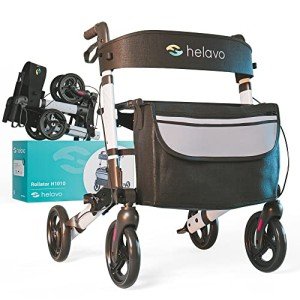12 Facts About Senior Walker To Make You Look Smart Around Other Peopl…
페이지 정보

본문
A Comprehensive Guide to Medical Walkers: Enhancing Mobility and Independence
In the world of health care, mobility plays an important function in rehabilitation and overall well-being, particularly for seniors and those recuperating from injuries. Amongst the myriad of mobility aids offered today, medical walkers stick out as flexible tools that assist in motion and enhance independence. This post will look into the types, advantages, considerations, and FAQs concerning medical walkers.

What is a Medical Walker?
A medical walker, frequently referred to as a walking frame, is a helpful gadget developed to help individuals with mobility difficulties walk with greater stability and ease. Walkers offer a more comprehensive base of support compared to canes and crutches, making them perfect for those with balance concerns or restricted strength.
Kinds Of Medical Walkers
| Type | Description | Features |
|---|---|---|
| Standard Reliable Walker | A fundamental four-legged frame without wheels, used primarily for stability. | Lightweight, tough, adjustable height, ideal for indoor and outdoor usage. |
| Wheeled Walker (Ergonomic Rollator Walker) | A walker with wheels on the front legs, enabling easier movement. | Geared up with hand brakes, a seat for resting, and storage alternatives. |
| Hemi Walker | A walker developed for individuals who can utilize one arm and require support. | Lightweight and compact, features a curved manage for much easier gripping. |
| Bariatric Walker | Created for larger people, using increased weight capability and stability. | Enhanced durability, larger frame, and encouraging features for heavier users. |
| Knee Walker | A special alternative for those with leg injuries, permitting them to rest the knee. | A platform to support the hurt leg, steering capabilities, and brakes. |
Benefits of Using a Medical Walker
- Improved Stability: Walkers supply extra points of contact with the ground, resulting in a more stable walking experience.
- Increased Independence: Users can browse their environment without needing assistance, increasing confidence and self-reliance.
- Enhanced Safety: The risk of falls is considerably lowered, as walkers provide support to those with balance problems.
- Flexible Usage: Many walkers are designed for both indoor and outdoor use, adjusting to various terrains.
- Assistance throughout Rehabilitation: Medical walkers are invaluable during healing from surgical treatments, injuries, or illnesses.
Factors to consider When Choosing a Medical Walker
When selecting a Medical Walker (visit this hyperlink), numerous aspects ought to be remembered:
| Consideration | Description |
|---|---|
| User's Condition | Assess the individual's strength, coordination, and specific requirements. |
| Devices Weight | Ensure the walker is lightweight enough for easy handling however durable enough for support. |
| Adjustable Height | The walker needs to be adjustable to fit the user's height for optimal comfort and functionality. |
| Hand Grip Comfort | Inspect that the grips are Comfortable Walker to hold for extended periods. |
| Weight Capacity | Ensure the walker can support the user's weight, particularly for bariatric walkers. |
| Storage Needs | Determine if additional features like baskets or trays are essential for carrying items. |
Frequently Asked Questions (FAQs)
How do I determine if I need a walker?If you experience problem in keeping balance, feel unsteady walking, or need assistance on flat surfaces or slopes, it's a good idea to seek advice from a health care professional for an evaluation. Can I utilize a walker outdoors?Yes, specifically developed
walkers with bigger wheels(wheeled walkers or rollators)appropriate for outdoor usage and can handle different terrains effectively. How do I keep my walker?Regularly examine the walker for loose parts, ensure wheels are oiled if
suitable, and tidy it as required. Consult
the maker's guidelines for particular upkeep instructions. Are walkers covered by insurance?Many insurance coverage prepares offer protection for walkers, but it is vital to contact your company to understand your specific policy
information. Can a walker assist with physical therapy?Yes, using
a walker can support rehabilitation efforts by supplying stability during workouts suggested by physio therapists. Medical walkers are invaluable tools that not
just help with movement and self-reliance however likewise significantly improve the lifestyle for individuals dealing with mobility obstacles. With numerous types readily available, selecting the ideal walker is
important to satisfying private requirements. The journey to restoring mobility can be daunting, however with the ideal devices and support, individuals can get rid of barriers and recover their independence. By understanding the kinds of walkers, their advantages, and vital considerations, users can make informed choices-- leading to a safer, more positive method of moving through life. Whether it's a Secure Rollator Walker for outdoor experiences or an easy walker for indoor navigation, the right walker can open doors to newly found flexibility and improvement in day-to-day life.
- 이전글La MAISON >FEMELLE >NON-CHIRURGICALE BBL 25.09.24
- 다음글Beware Of These "Trends" About Edwardian Conservatory Installers 25.09.24
댓글목록
등록된 댓글이 없습니다.

